IEMCC 2024 Recap: Primate Problem & A Win for U. of the Philippines
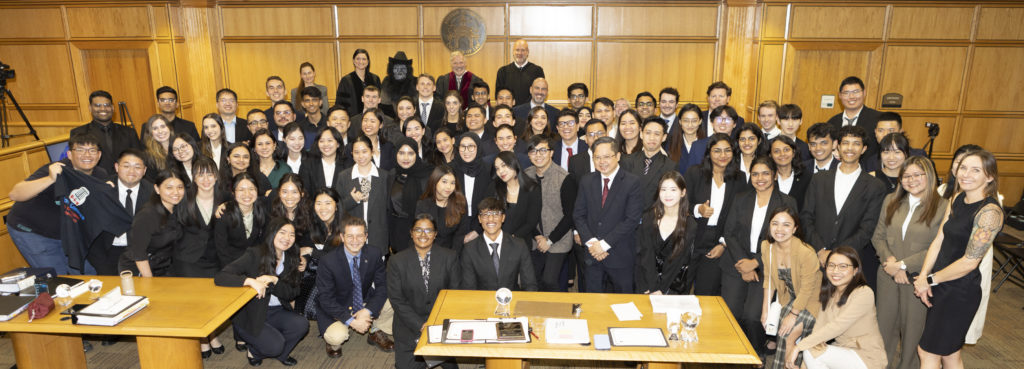
For the 28th year, the final rounds of the Stetson Law International Environmental Moot Court Competition brought teams from law schools around the world to compete on the Gulfport campus.
Kicking off, per tradition, with a special edition of the Foreman Biodiversity Lecture and a welcome reception, the event took place from April 10 to April 13.
Greeting the audience as the lecture began, Dean D. Benjamin Barros commended the faculty, staff, and students who worked to organize what he called an “incredibly impressive” competition.
“This is a fantastic event,” Barros said. “I think it builds on the strengths of Stetson. We are internationally known as an advocacy school and an environmental school – and I think, increasingly, as an international school.”
Exploring a complex environmental issue
Competing teams hailed from multiple continents, representing law schools in Brazil, China, Colombia, India, Indonesia, Ireland, Korea, Northern Ireland, Pakistan, the Philippines, Singapore, and the U.S.
The teams explored a fictional case involving protections for endangered gorilla populations, and argued on either side of the case before volunteer judges, including Associate Dean for Academic Affairs and Professor of Law Jason Palmer, whose specialty is International Arbitration and Litigation.
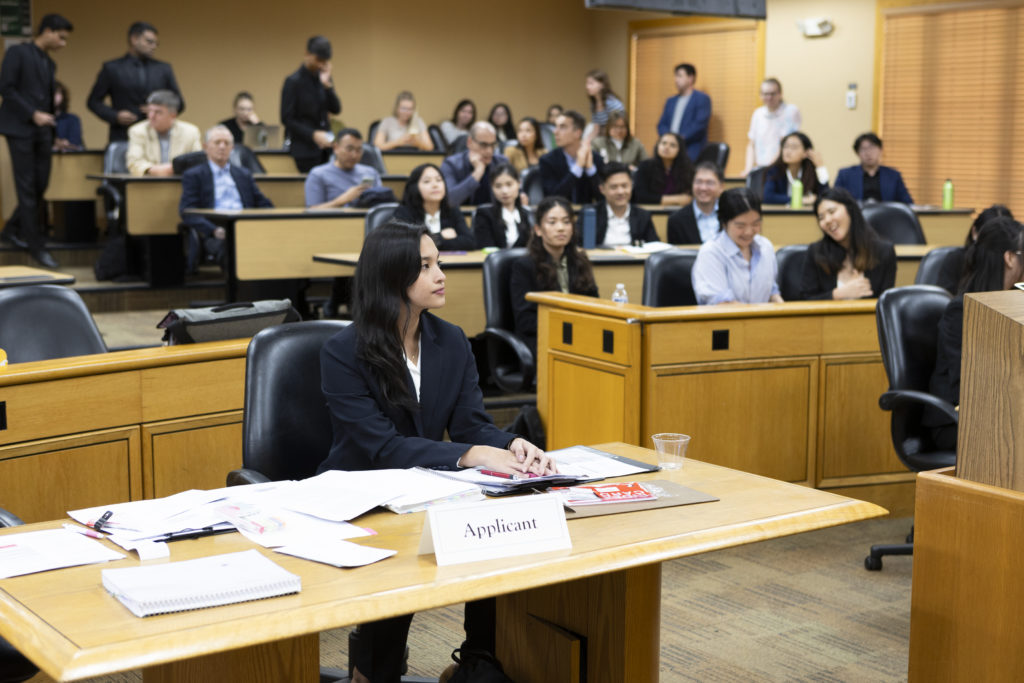
Ultimately, the winner was University of the Philippines College of Law, and the runner up was Singapore Management University. Ateneo de Naga University won Best Memorial and Institute of Professional Legal Studies, Queen’s University Belfast won the Spirit of Stetson Award.
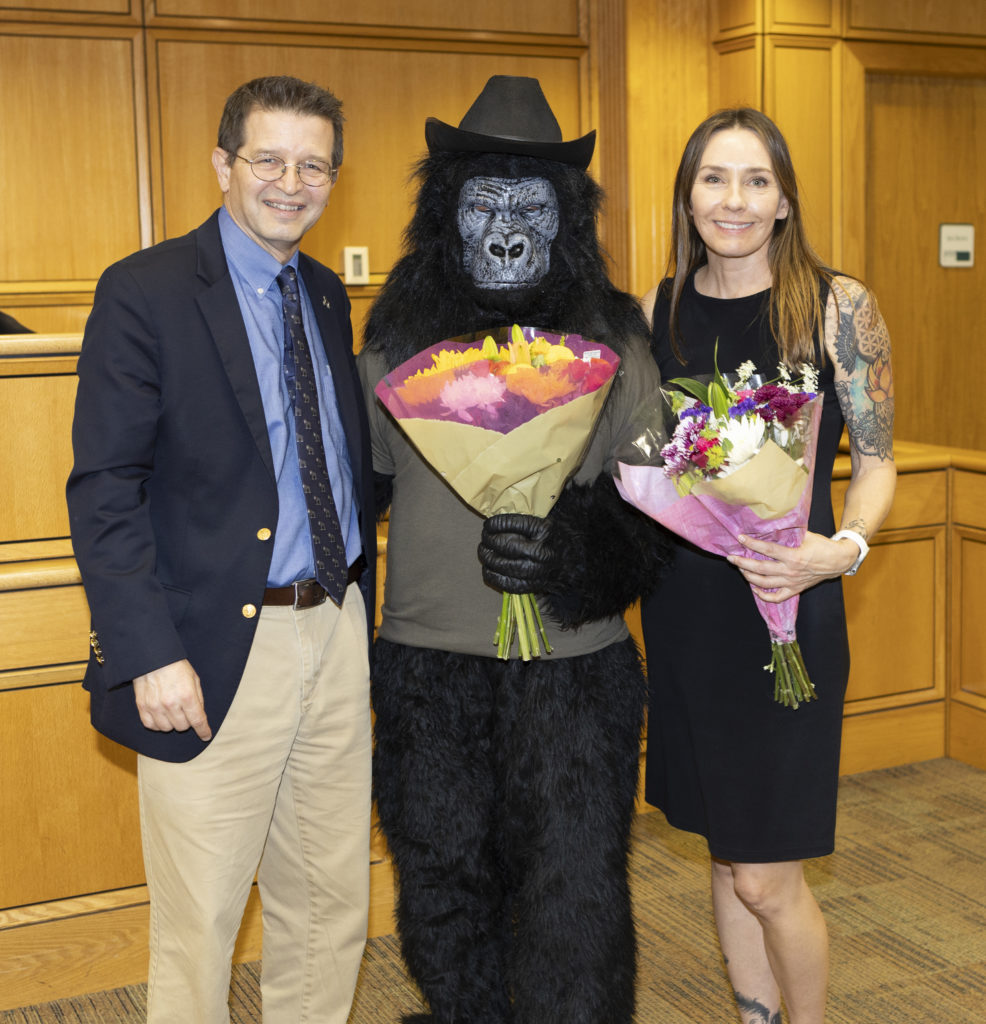
Much of the activity took place in Stetson Law’s new Advocacy Institute, a facility that is perfectly outfitted for simulated trial proceedings. There was even an appearance from a “gorilla.”
Exploring the legal deficiencies of international wildlife protections
The opening lecture featured James Wingard, J.D., who is partner and legal director at consulting firm Legal Atlas, and coauthor of “Legal Assessment of the Implementation of the Convention on Migratory Species and the Gorilla Agreement in Cameroon and Nigeria.”
His lecture, “Gorillas in the (Legal) Mist: Wildlife Trafficking & the Geography of Law,” took attendees along a hypothetical international journey along which a poached mountain gorilla might be trafficked.
After Law Professor and Co-Director of Stetson Law’s Institute for Biodiversity Law & Policy Director Royal Gardner introduced him, he asked the audience to imagine they’re a gorilla residing on protected land in a country where, despite stringent legal protections for your species, economic conditions make poaching you the only ticket out of extreme poverty.
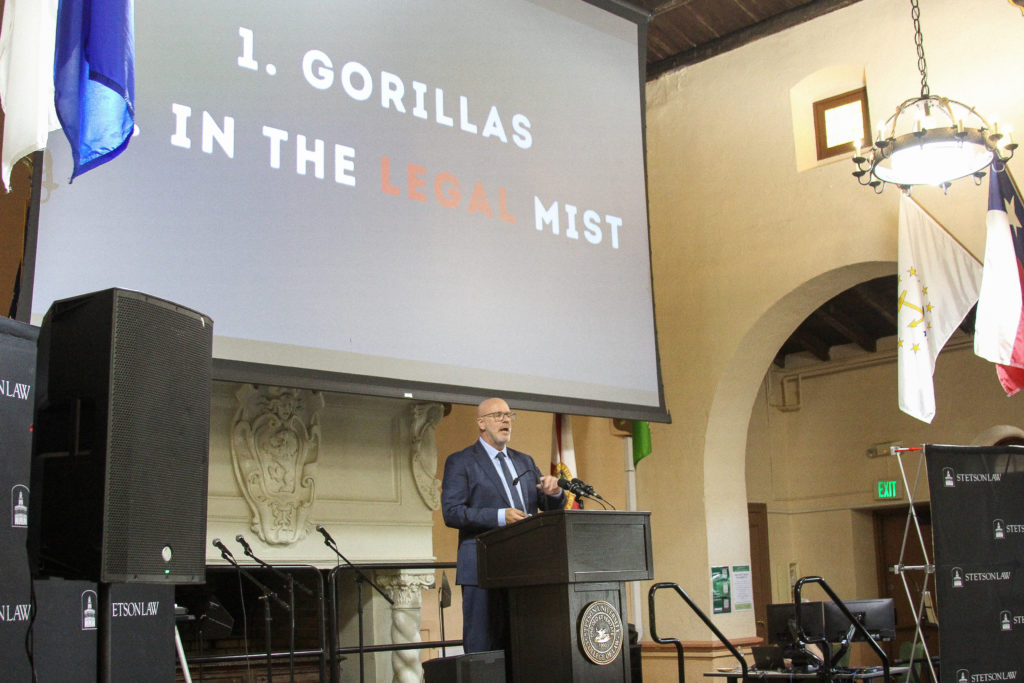
“Legally, you are a protected species. You’re critically endangered, that’s a legal designation in that country, and you reside in a protected area, which means you have further legal protections,” he said.
Things get foggy once a gorilla or member of another protected species is taken through multiple jurisdictions before reaching a buyer in, say, Saudi Arabia. These jurisdictions have different sets of laws, and some might have few laws against certain weapons, money-laundering, or other factors that aid poachers.
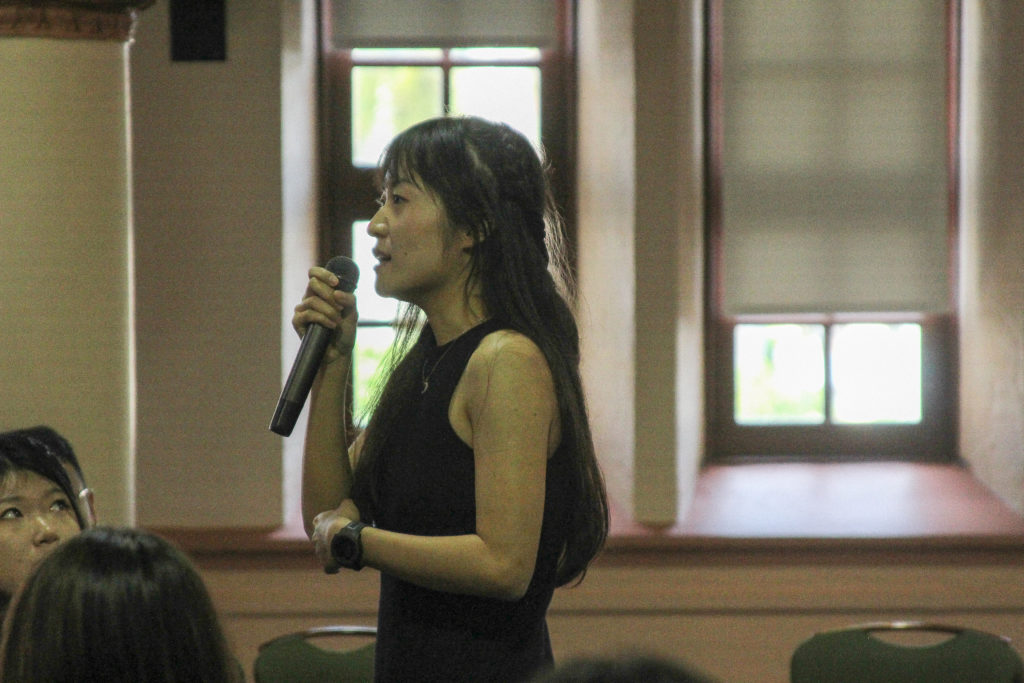
“Over 3,000 great apes are traded every year. Once they move into the world of trade, they move through many more jurisdictions,” he said. “They don’t just stay where they are.”
While there are international agreements in place to prevent poaching and trafficking of protected species like mountain gorillas, the geography of the crime makes it difficult to enforce them, let alone investigate potential incidences of the crime.
Closing his lecture with another hypothetical, Wingard encouraged the law students in the audience to explore potential solutions to the global problem.
“Now I’d like to ask everyone to imagine you’re a lawyer,” he said. “What will you do?”
Post date: April 19
Media contact: Kate Bradshaw
[email protected] | 727-430-1580